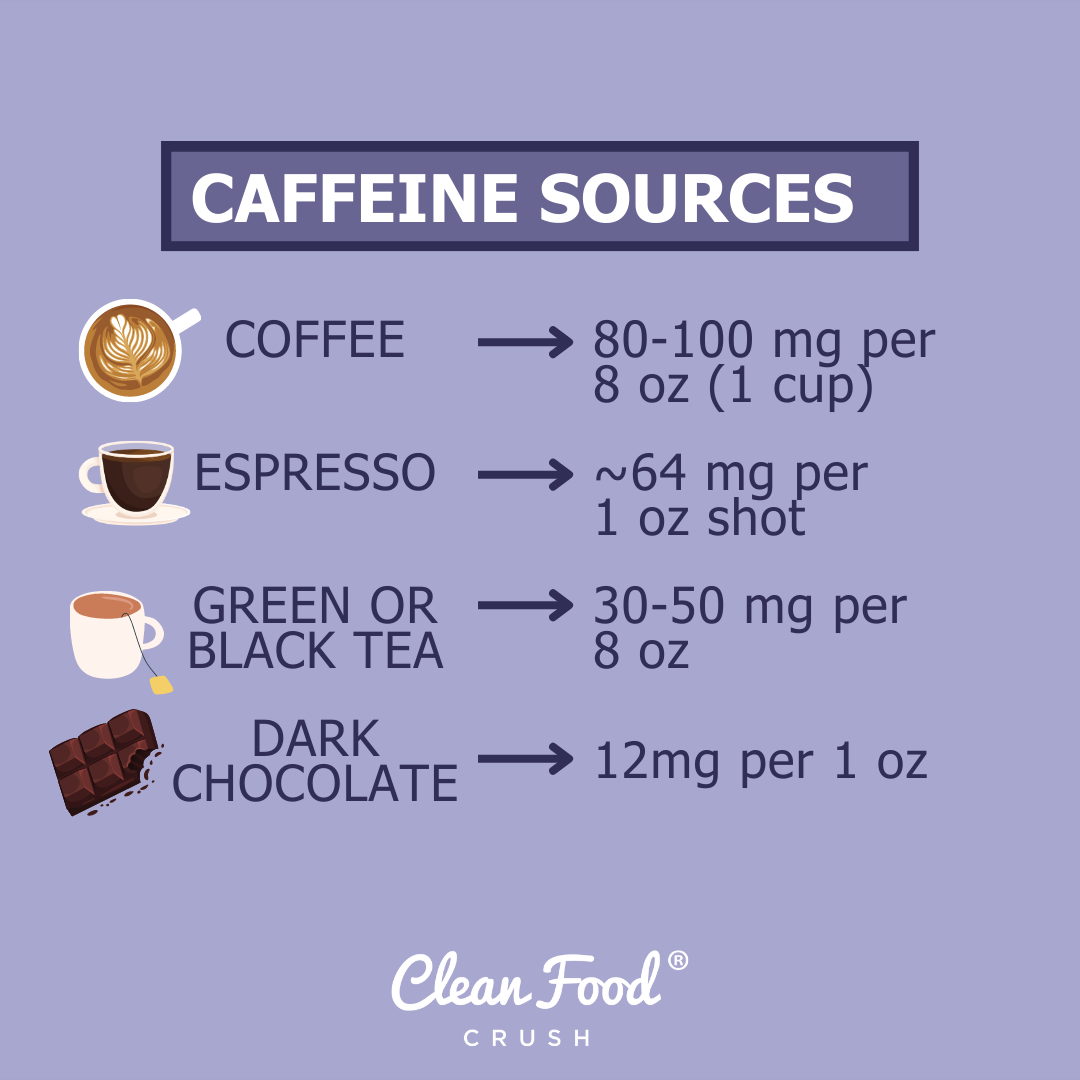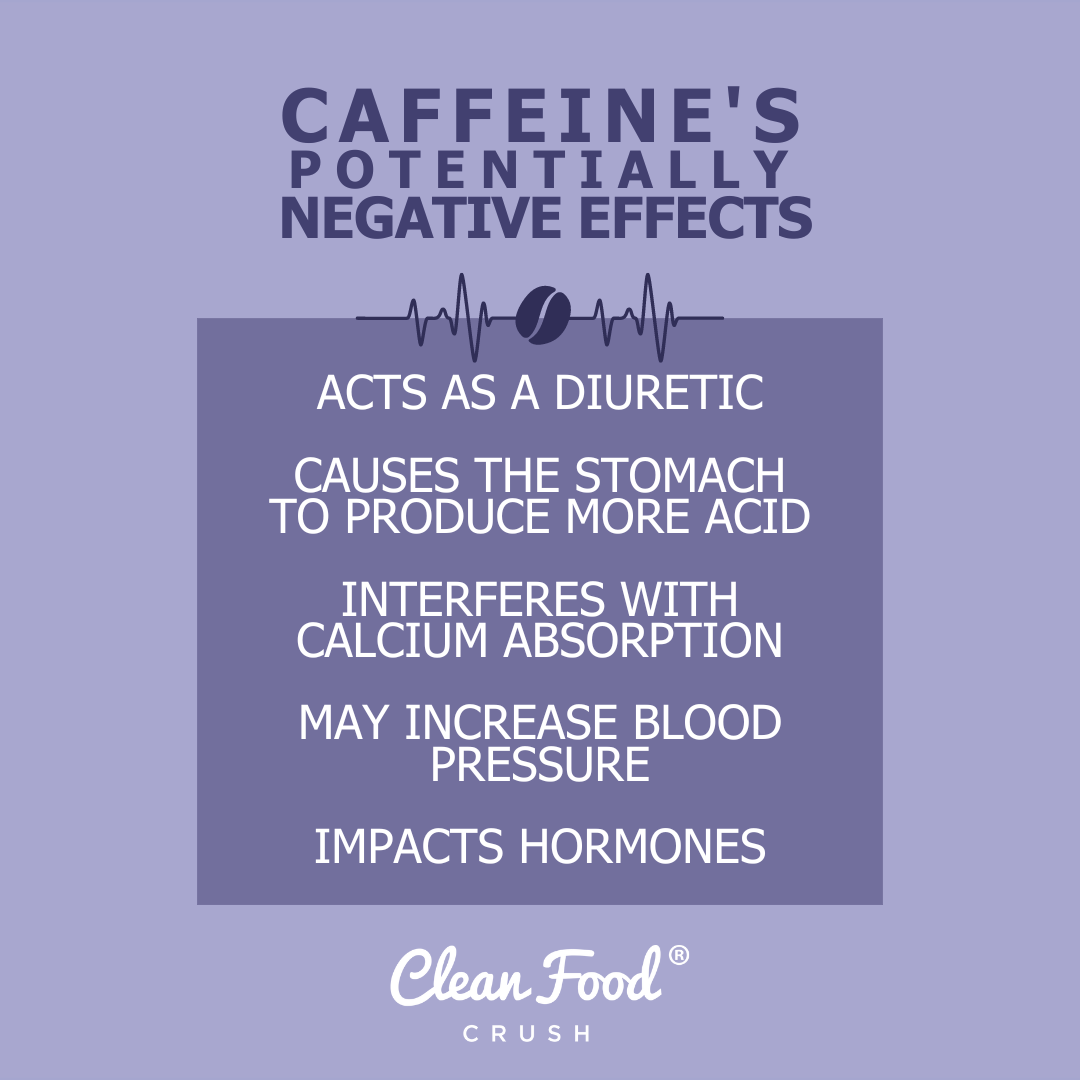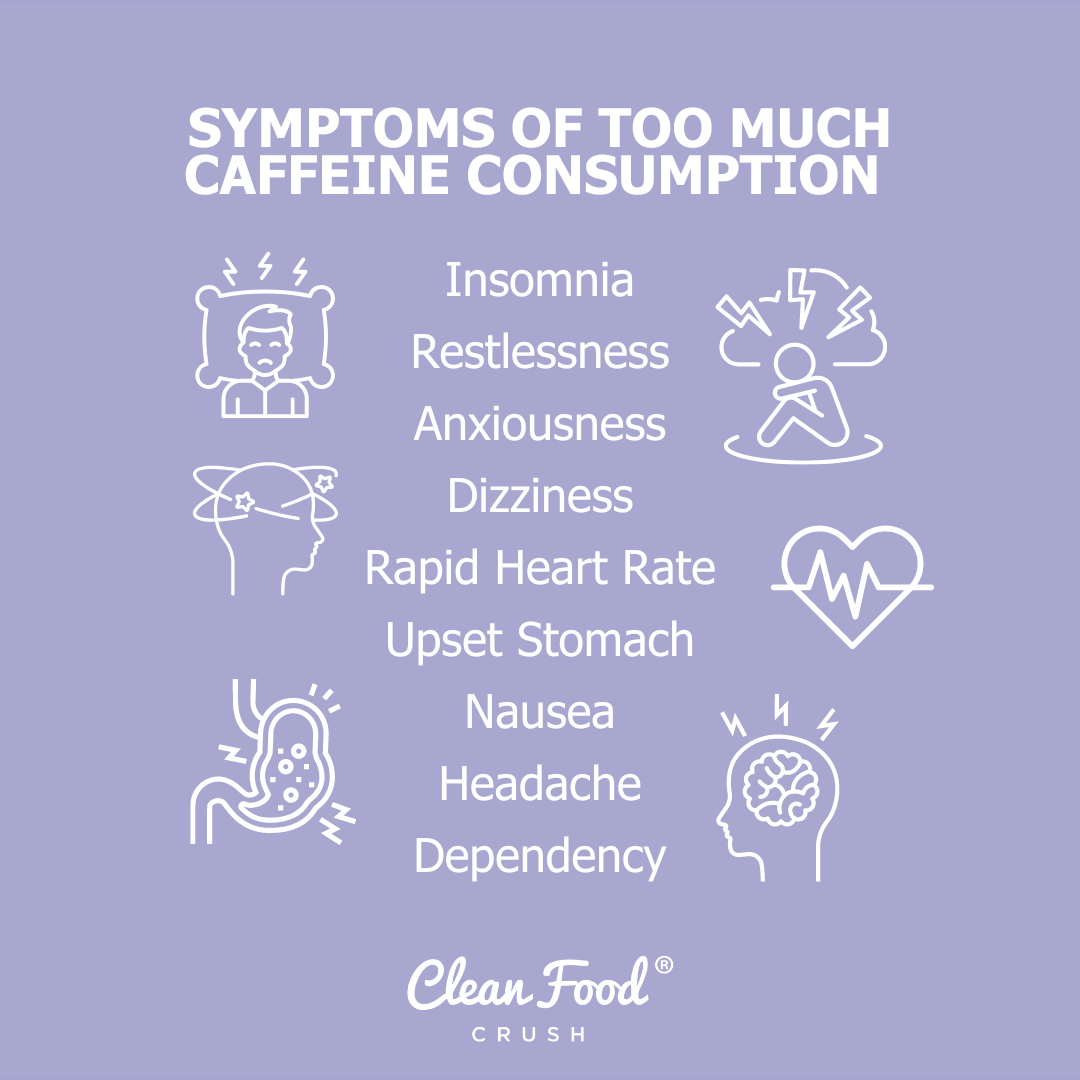

What You Should Know About Caffeine
If you often rely on caffeine to help get you through your days, then you definitely aren’t alone!
While caffeine can be a part of a healthy diet for most people, there is more you should know about how it impacts your body and how much is safe to consume.
What Is Caffeine And Where Is It Found?
Caffeine is a natural substance found in many plants. Common natural sources of caffeine, along with how much they typically contain, include:
- Coffee: 80-100 mg per 8 oz (1 cup)
- Espresso: ~64 mg per 1 oz shot
- Green or black teas: 30-50 mg per 8 oz
- Chocolate: 12mg per 1 oz of dark chocolate
Caffeine can also be man-made and added to various items, such as energy drinks, soda, and some medications and supplements. The amount of caffeine in these items can vary greatly, but some can contain very high amounts.

How Does Caffeine Impact Your Body?
Caffeine impacts your body in many ways, and these can be both negative and positive.
Some of the potential positive effects of caffeine include:
- May improve physical endurance. Caffeine has been found to help improve endurance during exercise and help you not become fatigued as quickly. This can help with athletic training and is why it’s often added to sports supplements.
- Gives you energy. This is the most well-known effect of caffeine. Because caffeine stimulates your central nervous system (which includes your brain), it can help you feel more awake by giving you a boost of energy.
- May improve focus and attention levels. Caffeine increases the production of a brain chemical called dopamine, which controls your ability to focus and concentrate. This is why drinking moderate amounts of caffeine can be helpful for students, night shift and other employees, and many others.
- May help you maintain or achieve a healthy weight. Caffeine can help increase the calories your body burns at rest, also known as the resting metabolic rate (RMR). It may also assist with fat-burning. However, remember that these benefits only apply to a healthy diet and lifestyle.
Some of the potential negative effects of caffeine include:
- Acts as a diuretic. Caffeine causes your body to lose more water and electrolytes like sodium (salt) by making you have to urinate more often. Too much caffeine could contribute to dehydration, but this is uncommon.
- Causes your stomach to produce more acid. This can sometimes cause symptoms like acid reflux or an upset stomach in some people, especially if it’s consumed on an empty stomach.
- Interferes with calcium absorption. Caffeine increases calcium loss in your urine, causing a mild decrease in calcium absorption. In high amounts, this could contribute to bone loss over time. Yet this is generally not a concern for people who consume enough calcium.
- May increase blood pressure. Caffeine can cause a temporary but sometimes dramatic increase in blood pressure, even for people who do not have high blood pressure.
- Impacts your hormones. Caffeine stimulates your adrenal glands, which are major hormone producers in your body. Caffeine can lead to your body producing more of the hormones adrenaline and cortisol, a stress hormone. This makes caffeine a stressor in the body in some situations and for certain people and can help explain why some people feel more anxious when they consume caffeine, especially in high amounts.

Is there such a thing as too much caffeine?
According to the Food and Drug Administration (FDA), most healthy adults can safely consume up to 400 mg of caffeine daily, which is the amount in about four to five 8 oz cups of coffee. However, some people’s bodies are more sensitive to caffeine than others. How much you tolerate can depend on things like your body weight, life stage, medications you may take, and how your unique metabolism works.

Symptoms that may indicate you have consumed too much caffeine could include:
- Insomnia
- Feeling jittery or restless
- Anxiousness
- Dizziness
- Rapid heart rate
- Upset stomach
- Nausea
- Headache
- Dependency (meaning you may end up needing more of it to get the same effect)
People who are pregnant, breastfeeding, and have certain medical conditions may need to limit their caffeine, even if they do not have any of the symptoms above. It is always a good idea to talk to your healthcare provider to determine whether and how much caffeine is safe for you.
 These Flourless Double-Dark Chocolate Brownies Can Give You that Low-Caffeine, High-Energy Feel!
These Flourless Double-Dark Chocolate Brownies Can Give You that Low-Caffeine, High-Energy Feel!
In Summary
Ultimately, moderate amounts of caffeine can safely be a part of the diet for most people. It is best to consume caffeine with a balanced meal or snack to help reduce possible adverse side effects and to pay attention to how you feel when drinking caffeine. And lastly, try to make sure your caffeine is coming from a healthful source like unsweetened coffee or tea and small amounts of dark chocolate rather than sugar-sweetened beverages.

Do you struggle with having sustainable energy or find yourself on the caffeine rollercoaster? Our Challengers consistently report that they experience significantly higher levels of energy following our 30-Day Clean Eating Challenge Plan. Many Challengers report better sleep and better moods as well. If you are looking for a proven program with a detailed plan, amazing support, and a money-back-guarantee, then give the Clean Eating Challenge a try!

















